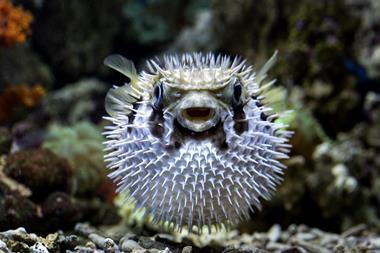Does literature snub the central science?
As Christmas approaches, Chemistry World brings you its annual bonanza of stocking-filler science books - from home kitchen experiments to comprehensive biographies. But there’s no fiction among them: indeed, shabby treatment of chemistry in fiction is now so familiar that it’s refreshing to be reminded there are some good novels featuring the subject, as Philip Ball surveys in this issue.
Aside from these select examples, chemistry’s calling-card in fiction - whether novels, films, or television shows - is still the familiar quick-fit image of the bespectacled boffin slaving behind liquids bubbling through improbably curved glassware. One of the most irritating aspects of this stereotype is that it sucks the humanity from chemistry, reducing a person to an obsessive white coat. Rare as it is for chemistry and its ideas to star in fiction, it’s rarer still to find a story with a character who happens to be a chemist, but is also simply a well-rounded human being, with outside interests, opinions and a personality - in short, who behaves anything like a real-life scientist.
It’s not surprising that many non-scientists find it hard to imagine what being a chemist must be like - starved as they are of realistic portrayals of laboratory or industry life seeping in from TV, film or literature. The closest they can get, perhaps, is the crime novel: but detectives such as Sherlock Holmes are hardly representative of laboratory chemists.
In 2005 scientist and book-lover Jennifer Rohn created an online magazine, LabLit.com, dedicated to building a more realistic perception of laboratory culture in fiction and the media. Rohn, a cell biologist and writer who works at University College London, says she launched the now thriving project after she read a novel about laboratory scientists and was bothered that she couldn’t easily find other books like it. Excluding science fiction (as it is usually set in alternative or speculative worlds), LabLit’s online community reckons only around one hundred novels have ever been written that contain realistic scientists plying their trade as part of the plot - and many of these are extremely obscure.
There are a few shining examples of fully-fledged fiction that just happen to star chemists. One that stands out is the 1953 comic novel, The struggles of Albert Woods , by William Cooper, the pen-name of English novelist Harry Hoff (1910-2002). Hoff writes brilliantly and with sharp wit about lovable, na?ve organic chemist Albert Woods - a small man battling to make headway through academic currents which always seem to favour his superiors.
In a darker vein, this year’s US television drama, Breaking Bad , which is yet to be shown in the UK, stars a high school chemistry teacher who cooks up methamphetamine to try to ensure his family’s security. It’s won two Emmy awards and critical acclaim for its un-stereotypical portrayal of a chemist whose personal life is falling apart.
Even the hit crime drama series CSI took a positive step: it broke with previous chemistry stereotypes, creating a more flattering - if just as one-dimensional - image of glamorous forensic scientists, that’s been credited with inspiring a wave of enthusiasm for studying the subject.
It’s significant that LabLit is an online community, where literary scientists who might have wondered how to get their message out individually can find like-minded people. The internet teems with thousands of blogs, diaries and video projects from chemists from all over the world writing about their lives in and out of the laboratory. Each one on its own is a small effort, but in less than a decade these collections have amassed more true-life, nuanced accounts of chemistry than published fiction has ever managed.
Richard Van Noorden, acting editor












No comments yet